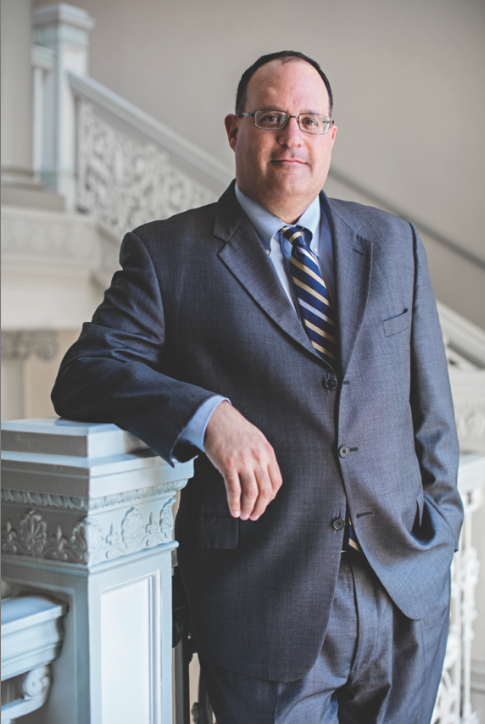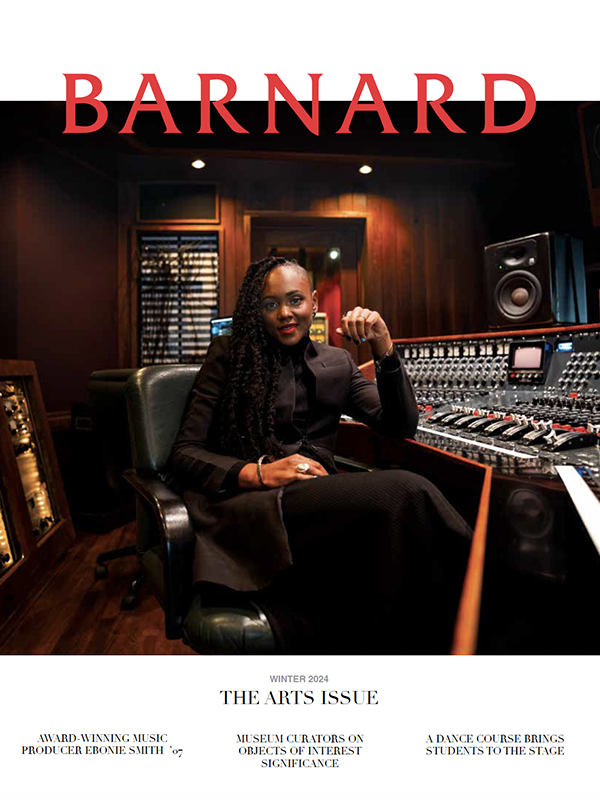“It’s an optimistic moment in Barnard’s history,” says Chief Operating Officer Robert Goldberg, referring to the transformative on-campus building and renovation projects currently being undertaken to ensure Barnard’s continuing educational leadership. Coming to the post just about one year ago, the native New Yorker entered the academic world after a long career in public service with the federal government.
Before joining Barnard, Goldberg spent much of his life in and around the Washington, D.C., area, attending George Washington University, where he received his bachelor’s and master’s degrees in international relations. He then joined the General Accounting Office (GAO), now the Government Accountability Office, running audits of national-security programs to determine effectiveness.

After five years, he moved to the national security division of the Office of Management and Budget, assessing budgets and policy and taking charge of procurement programs. The Department of State came next; he developed foreign-aid budgets and was charged with defending them to Congressional leadership. The negotiation process, sometimes tedious and partisan, ultimately led to his desire to move on. But Goldberg didn’t want to lose the sense of “mission” in public service. Below, he describes his transition from government to education and offers insights into his current responsibilities.
Are there similarities between the work you did as the director of the office of foreign assistance and as Barnard’s COO? There is a strong connection between working at senior levels in government and working at Barnard. Both are mission-driven, complex institutions. Each has critical constituencies, both internal and external, that are important to achieving their missions; each has complex financial and organizational needs that need to be managed. While the issues are different—I no longer have to worry about such things as how to fund humanitarian relief or counterterrorism programs—I do work on issues that are critical to Barnard. I still have to build and implement a budget that requires the same skill set that I honed in my government career. And while managing the design and construction process of the new teaching and learning center is complex, it requires the same organizational, financial, and interpersonal skills that I needed to be effective in Washington.
How do you begin planning for the College’s budget in an academic year? Budget planning is an ongoing process. We monitor spending, work with departments and offices to make adjustments throughout the year, and spend time planning for the following year. To build the budget, we ask departments and offices for their proposals; at the same time we assess the available revenue to determine how much we have to spend in a given year. Our goal is to protect the academic program, ensure our ability to recruit and retain the best faculty and staff, and contain costs.
Can you elaborate on what President Spar refers to as the College’s “complex fiscal landscape?” I agree that managing the financial operation of the College is a complex undertaking. Many factors contribute to our financial health. Barnard is tuition-dependent: tuition, room, and board charges comprise nearly 80 percent of our revenue. Growth in our endowment is another critical part of our finances and key to our long-term financial well-being. Our endowment is small for an institution of our size and reputation. A robust fundraising effort is important to endowment growth. We must tend to our financial health and maintain the College’s academic standards.
What aspects of Barnard’s relationship to Columbia do you oversee? I work with Columbia’s finance and facilities folks on areas where we have mutual interests, which include our relationship with their dining services, coordinating policy on environmental health and safety, implementing aspects of our intercorporate agreement, and discussing the status of our new teaching and learning center.
Where would you like to see the College be financially in another 5–10 years? I would like to see steady and sustained endowment growth to support Barnard in the future and to continue to enhance Barnard’s financial health to ensure that we maintain our academic excellence. How will I do this? Through careful cost management, more sophisticated long-range planning, system updates, and finding many more administrative efficiencies. •
